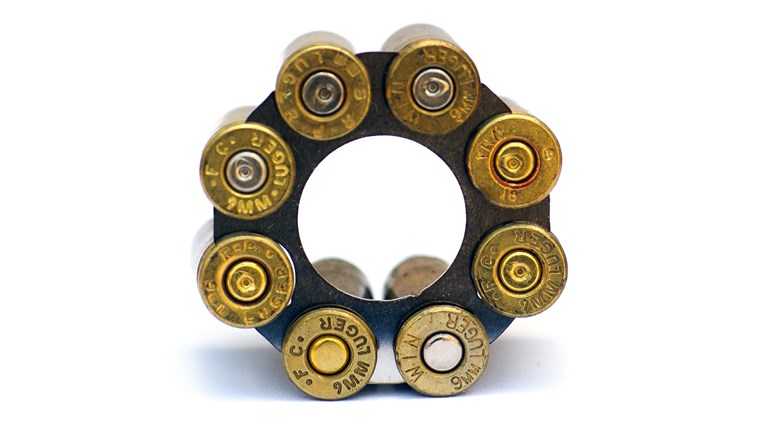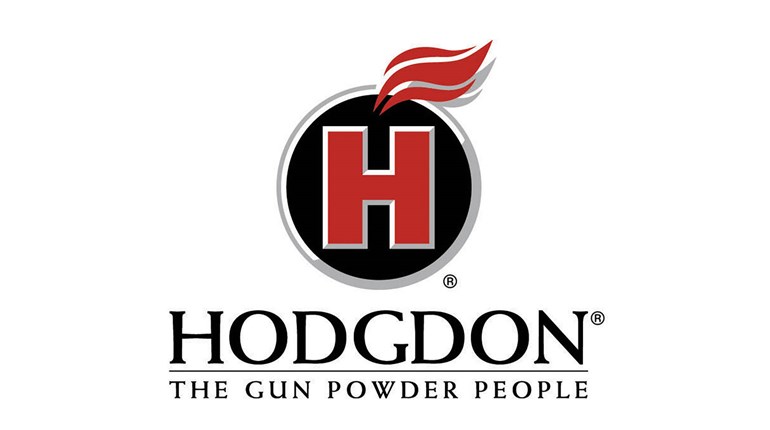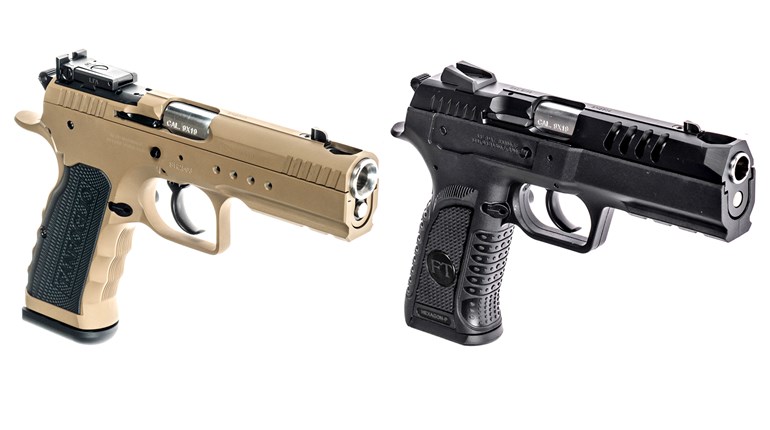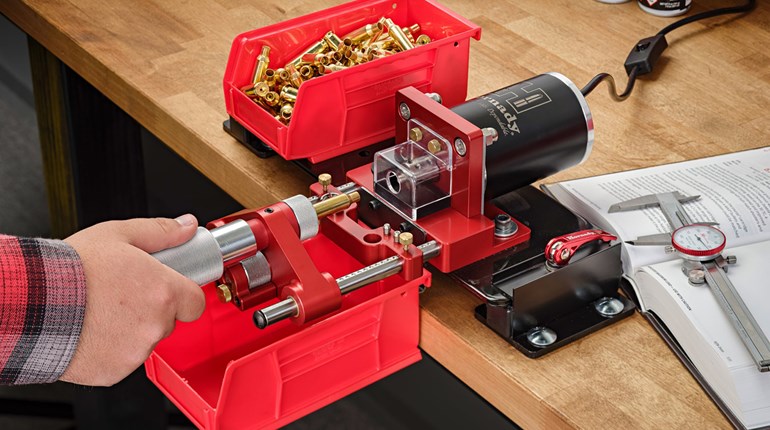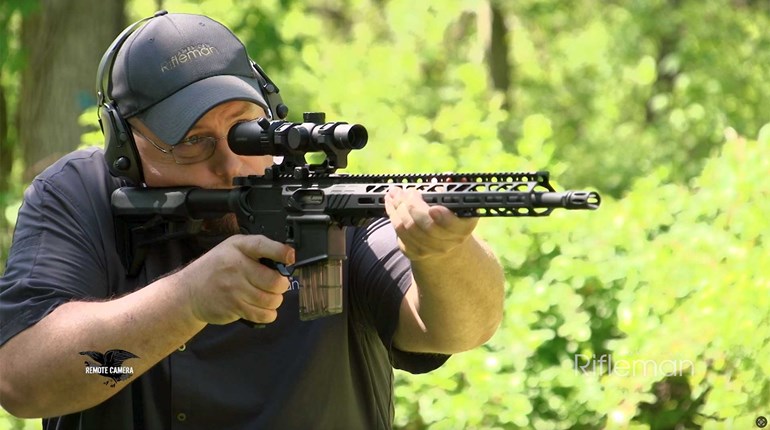
My buddy Phillip called the other day and said he had stopped by the gun store to pick up ammo. He was in a rant, using words and phrases that would make Andrew Dice Clay blush. Not only had he paid more than $30 for a box of .45 ACP ammo, he drove over 150 miles and went to three gun shops looking for it.
After belittling the ammo companies for failing to step up to meet demand and cursing the folks hoarding so much ammunition, Phillip proclaimed he was going to become a handloader. This was immediately followed by a flurry of questions that began with "What do I need to get started," and ended with "How can I load a lot of ammunition for the least amount of money?"
Almost two years ago I made the distinction between a reloader and a handloader. I characterized the handloader as being a perfectionist only interested in building the most accurate, mission-specific ammo he could construct. In contrast, the reloader was defined as someone primarily interested in producing mass volumes of ammunition. If you like to shoot a lot, right now is a good time to consider becoming a reloader.
To produce lots of ammunition in the least amount of time, you'll need a progressive press. I'd suggest either a Dillon Square Deal 'B' or RL550B. Both are capable of turning out 20 rounds per minute. That translates to at least 500 rounds per hour—if you add in time for prepping brass, helping the kids with homework and taking the dog out to see if the fire hydrant is still there. With either press, even a lazy reloader should be able to turn out about 4,000 rounds per week—a good number because you will need to load about that many rounds before you start saving money.
Of the four components that make up a loaded cartridge, brass is the only reusable one. It's also the expensive part of the equation. The key to saving money is to save your brass and scrounge for it anywhere you can. Every time you're at the range, pick up brass. Kids will pick up a lot of brass for an ice-cream cone. Don't just pick up brass you reload, pick it all up. Why? Other folks are reloaders too. Pin a note up at the local gun store advertising you have brass to trade. You might be surprised with what you end up.
Mark Pixlar with Dillon Precision suggests contacting local police departments for brass. You might get it free just by offering to pick it up. Cops are kind of lazy when it comes to picking up brass. Trust me, I ran a police range for many years, and it was easier to get them to arrest a drunk who wanted to fight than pick up brass.
Brass does not have to be pristine, but it does need to be functional. A tumbler and a pound of media can go a long way toward cleaning even seriously tarnished brass. When your media gets dirty, add some RCBS Sidewinder Case Tumbler, and it will keep on cleaning. Unless you're worried about extreme accuracy or are working with maximum loads, don't worry about sorting your brass by manufacturer.
There's not a lot of money to be saved with primers. The problem with primers right now is finding them. Some manufacturers caution against substituting one brand for another or substituting a magnum primer for a standard one. According to Remington, you can do both safely if you back off your powder charge by 10 percent and work up to the published velocity for a given load while watching for signs of excessive pressure.
The second most expensive component is bullets. You can buy bullets for as little as a nickel and as much as a dollar each. More expensive bullets might shoot slightly better or provide tailored terminal performance. If you're building ammunition for plinking or practice, neither is important. Most bullets will perform decent enough, and I've yet to see any that lacked the terminal performance required to punch a hole in a piece of paper or ring a steel target.
Keith Anderson with Ramshot Powders suggested using lighter-weight bullets because they are cheaper. Cast-lead bullets are cheaper too. If you have the time, cast your own. I know shooters who do, but for me time is as hard to come by as a one-hole group, so I've never considered casting bullets an option.
Unlike bullets, powder prices are fairly consistent and competitive. You're better off buying 4- or 8-pound canisters because you can save as much as a dollar per pound. If you and a buddy are using the same powder, double up on an order and save even more money.
Also, consider selecting a powder that will provide mid to maximum velocities with a small charge weight. For example; it takes 9.4 grains of Alliant Blue Dot to produce 877 fps with a 200-grain bullet in the .45 ACP, and 5.8 grains of Ramshot Zip is rated at 879 fps. Do the math: There are 7,000 grains per each pound of powder. With the loads listed, a pound of Blue Dot will load 744 rounds, and a pound of Zip will load 1,206 rounds for just about the same money.
Because of the characteristics of bottleneck rifle cartridges, you won't see as much discrepancy in powder charges, but you can still save money. According to the "Speer Reloading Manual #14," 51 grains of Winchester 760 powder will produce a muzzle velocity of almost 2,700 fps from a .308 Win. with a 165-grain bullet. Forty-four grains of Ramshot TAC will give the same performance. That's 159 as opposed to 137 loads per pound.
Another alternative with rifle cartridges—if you're not shooting a semi-automatic—is reduced loads. Reduced loads with IMR SR 4759 are great for short-range practice and will give you about twice as many shots from 1 pound of powder. With semi-automatics, reduced loads are not an option because your load must generate enough pressure to operate the gas-impingement, gas-piston or recoil-operated system that cycles the action.
Kent Sakamoto with RCBS brought up a very good point: If possible, select a powder that will work with all the pistol cartridges you load and another for all your rifle cartridges. This may seem impossible, but there are several that can do the job like Accurate No. 2, Ramshot Zip and Winchester 231 for pistols, and Accurate 2460, IMR 4895 and Ramshot TAC for rifles. I also highly recommend choosing a ball powder that meters consistently.
If you're like my buddy Phillip and are looking to acquire all the necessary equipment to start reloading my suggestion is not to try and save money by skimping on tools—Dad taught me that a long time ago and it applies to more than just reloading. It's OK to build cost-effective ammunition, but if you try doing it with cost-effective equipment you won't fill half an ammo can before something breaks. Pat Ryan at Redding agrees, "You can start with cheap reloading equipment you have to replace in a few years, or purchase the best and it will last a lifetime or more."
Let's say you commit to shooting 4,000 rounds of rifle and handgun ammunition each year. It may sound like a lot, but its not; I conduct one-on-one tactical handgun training courses and we typically go through 300 rounds each session. If you purchase the cheapest ammunition you can find—generally ammo loaded in non-reloadable steel cases—and compare it to the price of the least-expensive handloads you can put together, you will save about $350, or about 8.5 cents per round. Compared to factory ammo in reloadable cases, your savings double. In one year, you save enough to pay for the reloading equipment.
On the other side of the coin, if you shoot considerably fewer than 4,000 rounds per year, you're probably better off—at least financially—to use brass-cased factory ammunition and sell or trade your brass to someone who handloads. However, most reloaders do it for more than just saving money. They consider it to be fun, a way to extend the enjoyment of the shooting sports into the dark of night and the cold of winter.
It's also a great way to learn more about firearms and ammunition, and I'll bet before long you will progress from a reloader to a handloader. Either way, if you're smart and really savvy, you can convince your significant other into helping you sort brass and running the press. If you pull that off, let me know how you did it.
Sources
Accurate Arms Company(406) 234-0422
CCI(866) 286-7436
Colorado Cast Bullets(970) 249-4227
Dillon Precision(800) 762-3845
Federal(800) 322-2342
Hodgdon Powder Company(913) 362-9455
IMR Powder Company(913) 362-9455
Ramshot Powder/Western Powders(406) 234-0422
RCBS(800) 533-5000
Redding Reloading(607) 753-3331
Remington(800) 243-9700
Sierra(800) 223-8799
Widener's Reloading & Shooting Supply(800) 615-3006












